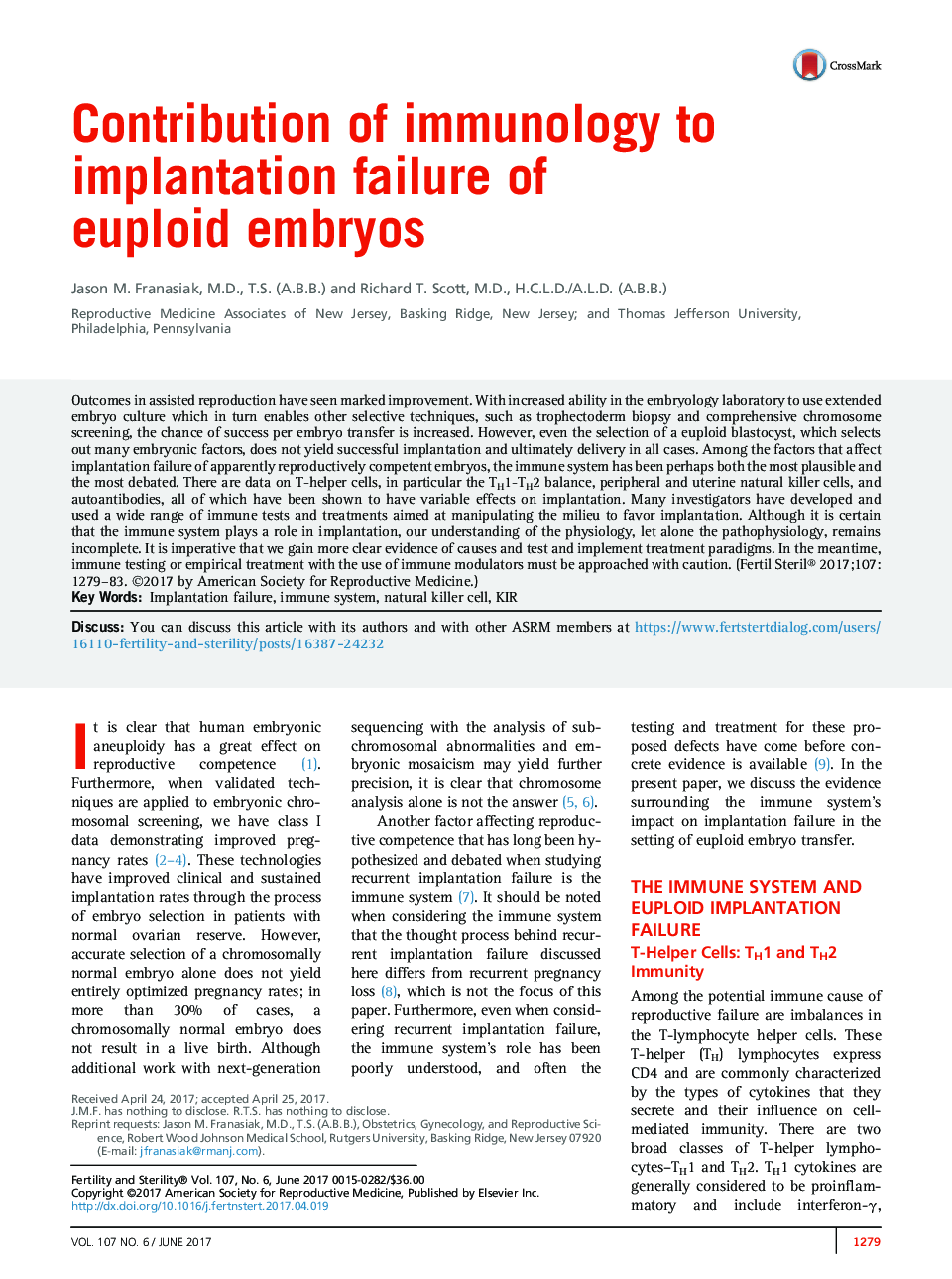| کد مقاله | کد نشریه | سال انتشار | مقاله انگلیسی | نسخه تمام متن |
|---|---|---|---|---|
| 5695056 | 1410209 | 2017 | 5 صفحه PDF | دانلود رایگان |
عنوان انگلیسی مقاله ISI
Contribution of immunology to implantation failure of euploid embryos
ترجمه فارسی عنوان
نقش ایمونولوژی در شکستگی لانه گزینی جنین های یوپلویید
دانلود مقاله + سفارش ترجمه
دانلود مقاله ISI انگلیسی
رایگان برای ایرانیان
کلمات کلیدی
موضوعات مرتبط
علوم پزشکی و سلامت
پزشکی و دندانپزشکی
زنان، زایمان و بهداشت زنان
چکیده انگلیسی
Outcomes in assisted reproduction have seen marked improvement. With increased ability in the embryology laboratory to use extended embryo culture which in turn enables other selective techniques, such as trophectoderm biopsy and comprehensive chromosome screening, the chance of success per embryo transfer is increased. However, even the selection of a euploid blastocyst, which selects out many embryonic factors, does not yield successful implantation and ultimately delivery in all cases. Among the factors that affect implantation failure of apparently reproductively competent embryos, the immune system has been perhaps both the most plausible and the most debated. There are data on T-helper cells, in particular the TH1-TH2 balance, peripheral and uterine natural killer cells, and autoantibodies, all of which have been shown to have variable effects on implantation. Many investigators have developed and used a wide range of immune tests and treatments aimed at manipulating the milieu to favor implantation. Although it is certain that the immune system plays a role in implantation, our understanding of the physiology, let alone the pathophysiology, remains incomplete. It is imperative that we gain more clear evidence of causes and test and implement treatment paradigms. In the meantime, immune testing or empirical treatment with the use of immune modulators must be approached with caution.
ناشر
Database: Elsevier - ScienceDirect (ساینس دایرکت)
Journal: Fertility and Sterility - Volume 107, Issue 6, June 2017, Pages 1279-1283
Journal: Fertility and Sterility - Volume 107, Issue 6, June 2017, Pages 1279-1283
نویسندگان
Jason M. M.D., T.S. (A.B.B.), Richard T. M.D., H.C.L.D./A.L.D. (A.B.B.),
